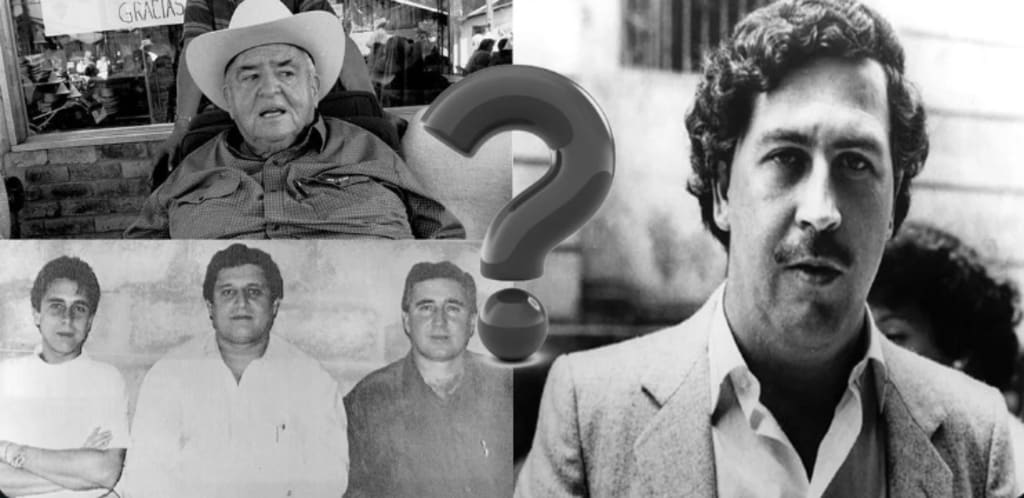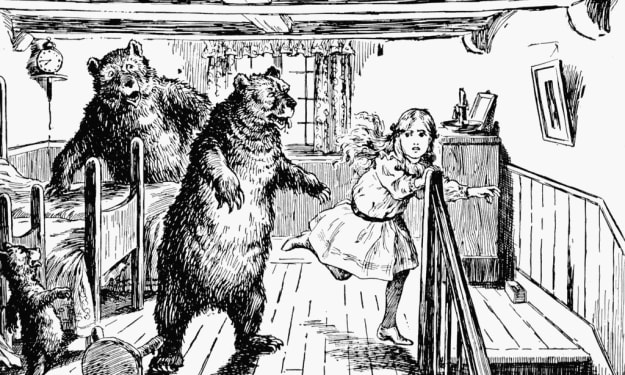Inside the Notorious Medellín Cartel: The Rise and Fall of Pablo Escobar's Criminal Empire
A Look at the Most Powerful Drug Cartel in History and the Legacy of its Infamous Leader

The Medellín Cartel was one of the most powerful and notorious drug trafficking organizations in history. Led by Pablo Escobar, the cartel dominated the global cocaine trade in the 1980s and early 1990s, generating billions of dollars in profits and leaving a trail of violence and corruption in its wake. In this article, we'll take a closer look at the Medellín Cartel and the legacy of its infamous leader.
The Origins of the Medellín Cartel
The Medellín Cartel was founded in the late 1970s by a group of Colombian drug traffickers, including Pablo Escobar, Carlos Lehder, and Jorge Luis Ochoa. The cartel quickly became the dominant force in the global cocaine trade, thanks in part to its innovative smuggling methods and ruthless approach to business.
Under Escobar's leadership, the Medellín Cartel pioneered the use of small planes to transport cocaine from Colombia to the United States, circumventing traditional drug trafficking routes and earning the cartel billions of dollars in profits.
The Rise of Pablo Escobar
Pablo Escobar, who served as the de facto leader of the Medellín Cartel, was a charismatic and ruthless figure who was feared and admired by many. He amassed a personal fortune estimated at over $30 billion, making him one of the wealthiest men in the world.
Escobar's rise to power was marked by violence and corruption. He employed a vast network of hitmen and bribed government officials and law enforcement officers to protect his operations. He was also responsible for the deaths of thousands of people, including judges, journalists, and politicians who stood in his way.
Despite his violent tactics, Escobar was seen by many as a Robin Hood-like figure who provided for the poor and challenged the establishment. He was known for his generous donations to charity and his support for local communities, which earned him the loyalty of many in Colombia.
The Fall of the Medellín Cartel
The Medellín Cartel's reign of terror came to an end in the early 1990s, thanks in large part to the efforts of the Colombian government and law enforcement. In 1991, Escobar surrendered to authorities and was sent to prison, but he continued to run his operations from behind bars.
The Colombian government eventually decided to take action against Escobar and the Medellín Cartel. In 1993, they launched a massive manhunt for Escobar, who had escaped from prison and was on the run. After months of searching, Escobar was finally located and killed in a shootout with police in December of that year.
The Legacy of the Medellín Cartel
The Medellín Cartel left a lasting impact on Colombia and the world. Its violent tactics and corruption eroded the rule of law and undermined trust in government institutions. The cartel's operations also contributed to the rise of other criminal organizations, including the Cali Cartel and the Norte del Valle Cartel.
Today, the legacy of the Medellín Cartel can still be seen in the drug trade and violence that continues to plague Colombia and other countries. The country remains a major producer of cocaine and other illegal drugs, and organized crime continues to be a pervasive problem.
Despite these ongoing challenges, however, Colombia has made significant progress in the fight against organized crime and corruption. The government has implemented reforms aimed at strengthening the rule of law and improving security, and the country has seen a decline in violence and crime in recent years.
Conclusion
The Medellín Cartel was one of the most powerful and notorious drug trafficking organizations in history, and its leader, Pablo Escobar, was one of the most infamous and feared criminals of his time. The cartel's reign of terror was marked by violence, corruption, and innovation, as it dominated the global cocaine trade and amassed billions of dollars in profits.
Despite its power and wealth, however, the Medellín Cartel ultimately fell due to the efforts of law enforcement and government officials. Escobar's death in 1993 marked the end of an era, but the legacy of the cartel and its impact on Colombia and the world still resonate today.
The rise and fall of the Medellín Cartel serves as a cautionary tale about the dangers of organized crime and corruption. It highlights the importance of strong law enforcement and government institutions, as well as the need for international cooperation in the fight against drug trafficking and other criminal activities.
Furthermore, it underscores the human cost of the drug trade and the need for comprehensive drug policies that prioritize public health and safety. While the Medellín Cartel may be a thing of the past, the drug trade and the violence and corruption that accompany it continue to pose significant challenges to governments and societies around the world.
In conclusion, the Medellín Cartel was a powerful and ruthless drug trafficking organization that dominated the global cocaine trade in the 1980s and early 1990s. Its leader, Pablo Escobar, was one of the most infamous and feared criminals of his time, but his reign of terror ultimately came to an end thanks to the efforts of law enforcement and government officials.
Today, the legacy of the Medellín Cartel serves as a reminder of the dangers of organized crime and corruption and the need for strong institutions and international cooperation in the fight against these issues. It also highlights the human cost of the drug trade and the ongoing need for comprehensive drug policies that prioritize public health and safety.
About the Creator
Aadhi Penten
With a love for exploring the world and a passion for sharing my experiences through words, my articles is a window into my life and a source of inspiration for those seeking adventure. From travel tips to personal stories






Comments
There are no comments for this story
Be the first to respond and start the conversation.